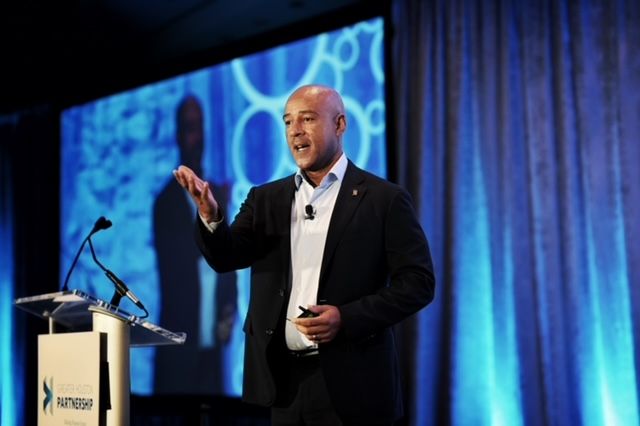Rice University President Unveils Top Priorities, Research Initiatives
Published Nov 30, 2023 by Hailea Schultz
Rice University President Reggie DesRoches delved into the institution’s transformative advancements, identifying research and community collaboration as top priorities of focus at the Partnership’s annual State of Education.
Supporting nearly 9,000 students, Rice is a critical part of the region’s higher education ecosystem and serves as a catalyst for building Houston’s future workforce.
To better serve Houston’s community and key industries, Rice has strategically increased its efforts to advance impactful research within the institution. These efforts include a significant 20% augmentation of undergraduate and graduate students, the addition of 200 faculty members and the inauguration of a state-of-the-art facility dedicated to energy transition research – The Ralph S. O’Connor Building for Engineering and Science.
“The focus of our research is not just to have research but to have an impact in the region and the greater community,” said DesRoches.
DesRoches highlighted that Rice is also working to increase the presence of graduate students focusing on PhD programs, which will further expand the institution’s research initiatives.
To drive more impactful research and to cement the university’s position as a leading innovation hub, DesRoches pointed to collaboration. Through the support and partnerships of local entities and organizations like The Ion Houston and Greentown Labs, Rice has established many groundbreaking programs such as the Entrepreneurship Exchange for Energy. These efforts underline the university's dedication to cultivating research and innovation within Houston and beyond.
As a true testament of research and collaboration, Rice recently partnered with Houston Methodist to open the Center for Human Performance; a 6,000-square-foot research facility located in Rice’s Tudor Fieldhouse. The new facility aims to propel research focusing on injury prevention and recovery, improving overall health across the region.
However, Rice sees more potential to be unlocked by leveraging the Texas Medical Center as a resource to deepen its engagement in health sciences, aiming for elevated contributions to the field.
"The research and development stemming from [Rice University] are key drivers of technological advancement, which helps us attract businesses seeking to leverage the latest innovations to Houston," said Partnership President and CEO Bob Harvey.
Learn more about Houston’s Higher Education Institutions.
 The Houston Report
The Houston Report




















